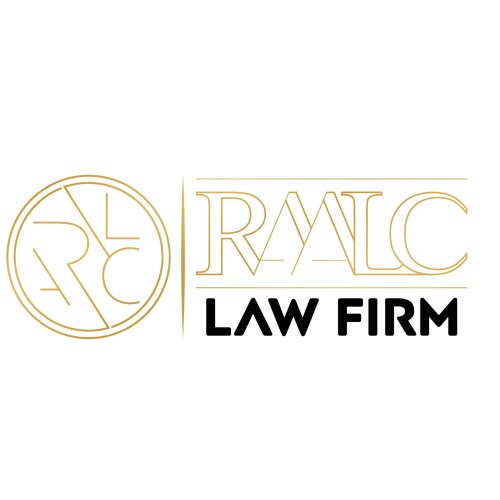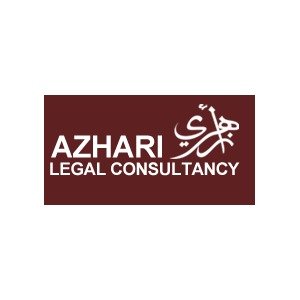Best Equity Capital Markets Lawyers in Dubai
Share your needs with us, get contacted by law firms.
Free. Takes 2 min.
List of the best lawyers in Dubai, United Arab Emirates
About Equity Capital Markets Law in Dubai, United Arab Emirates
Equity capital markets (ECM) refer to financial markets where companies raise funds by issuing shares to the public or private investors. In Dubai and across the United Arab Emirates (UAE), ECM law governs the legal framework, regulations, and procedures related to initial public offerings (IPOs), rights issues, private placements, and other transactions involving company equity. Dubai's thriving commercial sector and its prominent exchanges, such as the Dubai Financial Market (DFM) and NASDAQ Dubai, have helped establish the city as a regional financial hub with robust infrastructure for equity capital transactions. Understanding ECM law is vital for both domestic and international businesses seeking to raise capital, comply with regulatory requirements, and protect investor interests.
Why You May Need a Lawyer
Navigating the equity capital markets in Dubai can be complex due to the mix of local, regional, and international regulations at play. There are several situations where legal advice is essential:
- Preparing for an initial public offering (IPO) on a Dubai exchange
- Structuring private placements or rights issues
- Ensuring compliance with regulatory requirements from authorities such as the Securities and Commodities Authority (SCA) and relevant stock exchanges
- Undertaking mergers or acquisitions involving listed or soon-to-be-listed entities
- Handling cross-border ECM transactions and navigating foreign ownership rules
- Advising on corporate governance, disclosure obligations, and material event notifications
- Resolving disputes among shareholders or between companies and regulators
- Managing legal risks in complex transactions
A specialized ECM lawyer can help you minimize risk, ensure compliance, and facilitate smooth transactions in this highly regulated environment.
Local Laws Overview
Dubai’s equity capital markets are primarily regulated by a combination of federal and emirate-level laws, as well as rules put forth by relevant exchanges. Some key aspects include:
- Securities and Commodities Authority (SCA) Law: The SCA supervises and regulates the UAE’s capital markets, setting out requirements for offerings, disclosures, and ongoing compliance for listed entities.
- Commercial Companies Law: Federal Decree Law No. 32 of 2021 governs the establishment, operation, and capital structuring of companies, including those wishing to list on a public exchange.
- Dubai Financial Market (DFM) and NASDAQ Dubai rules: Each exchange has its own regulations for listings, ongoing disclosure requirements, and corporate governance standards.
- Foreign ownership regulations: Recent reforms allow many companies to have up to 100 percent foreign ownership, but sector-specific restrictions may still apply.
- Prospectus and disclosure obligations: Companies raising capital must prepare and file detailed prospectuses and adhere to ongoing disclosure and reporting requirements to protect investors.
- Market conduct and insider trading: Strict rules prohibit market abuse, insider trading, and the disclosure of sensitive information without proper channels.
It is important to recognize that additional regulations may apply if your company is located within the Dubai International Financial Centre (DIFC), which has its own financial regulatory authority and legal system based on English common law.
Frequently Asked Questions
What is an initial public offering (IPO) in Dubai?
An IPO is the process by which a company offers its shares to the public and lists them on a stock exchange for the first time. In Dubai, this can be done on the Dubai Financial Market or NASDAQ Dubai, subject to regulatory approval and compliance with listing rules.
What are the main regulatory bodies overseeing equity capital markets in Dubai?
The principal regulators are the Securities and Commodities Authority (SCA), Dubai Financial Market (DFM), NASDAQ Dubai, and, for companies within the DIFC, the Dubai Financial Services Authority (DFSA).
Can foreign investors own shares in Dubai-listed companies?
Yes, recent legal reforms allow many companies to have up to 100 percent foreign ownership, although restrictions may still apply for certain sectors or strategic companies.
What documents are required for an equity offering?
Generally, companies must provide a prospectus containing financial statements, corporate governance information, and risk disclosures, along with other supporting documents such as board approvals and auditor reports.
What continuing obligations do publicly listed companies have?
Listed companies must comply with ongoing disclosure requirements, including regular financial reporting, immediate notification of material events, and adherence to governance standards.
What are the penalties for violating equity market regulations?
Penalties can include fines, suspension of trading, delisting from the exchange, or even criminal liability for serious breaches such as market manipulation or insider trading.
How long does it take to complete an IPO in Dubai?
The timeline varies depending on the complexity of the business and regulatory requirements, but a typical IPO process may take between six to twelve months.
Are private placements regulated in Dubai?
Yes, private placements are subject to SCA regulations and may require prior approval or notification, especially if they involve a large number of investors or exceed certain thresholds.
How are disputes among shareholders handled?
Disputes can be resolved through negotiation, mediation, arbitration, or litigation. The approach often depends on the company’s articles of association and the legal framework applicable to the listing venue.
What legal structures are suitable for a company wishing to go public in Dubai?
Most public listings involve public joint stock companies (PJSC), although other structures can sometimes be used, depending on the exchange and regulatory approval.
Additional Resources
The following organizations and resources can provide more information and guidance regarding equity capital markets in Dubai:
- Securities and Commodities Authority (SCA)
- Dubai Financial Market (DFM)
- NASDAQ Dubai
- Dubai International Financial Centre (DIFC)
- Dubai Financial Services Authority (DFSA)
- Ministry of Economy, UAE
- Legal and financial advisory firms specializing in ECM transactions
- Chambers of Commerce and business councils in Dubai
Next Steps
If you are considering raising capital or navigating equity markets in Dubai, consider the following steps:
- Conduct preliminary research to understand your options and obligations
- Engage with a lawyer or legal firm experienced in equity capital market transactions in Dubai
- Prepare your corporate documentation and ensure compliance with regulatory requirements
- Initiate dialogue with relevant regulatory authorities and exchanges
- Set a timeline and budget for the planned transaction or project
- Keep informed of ongoing obligations to remain compliant after your transaction concludes
A qualified equity capital markets lawyer can provide tailored advice, ensure regulatory compliance, and help manage risks throughout the process. Begin by scheduling an initial consultation to discuss your goals and legal needs.
Lawzana helps you find the best lawyers and law firms in Dubai through a curated and pre-screened list of qualified legal professionals. Our platform offers rankings and detailed profiles of attorneys and law firms, allowing you to compare based on practice areas, including Equity Capital Markets, experience, and client feedback.
Each profile includes a description of the firm's areas of practice, client reviews, team members and partners, year of establishment, spoken languages, office locations, contact information, social media presence, and any published articles or resources. Most firms on our platform speak English and are experienced in both local and international legal matters.
Get a quote from top-rated law firms in Dubai, United Arab Emirates — quickly, securely, and without unnecessary hassle.
Disclaimer:
The information provided on this page is for general informational purposes only and does not constitute legal advice. While we strive to ensure the accuracy and relevance of the content, legal information may change over time, and interpretations of the law can vary. You should always consult with a qualified legal professional for advice specific to your situation.
We disclaim all liability for actions taken or not taken based on the content of this page. If you believe any information is incorrect or outdated, please contact us, and we will review and update it where appropriate.
















